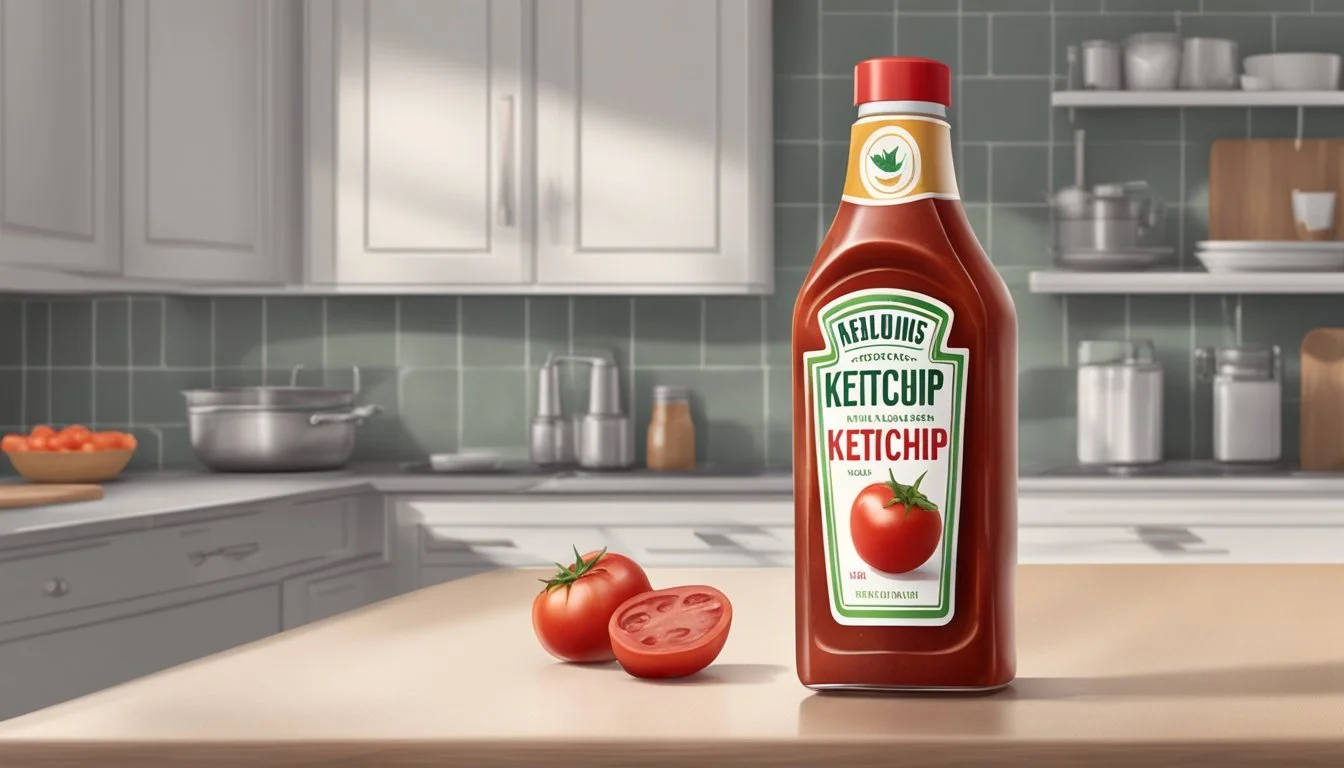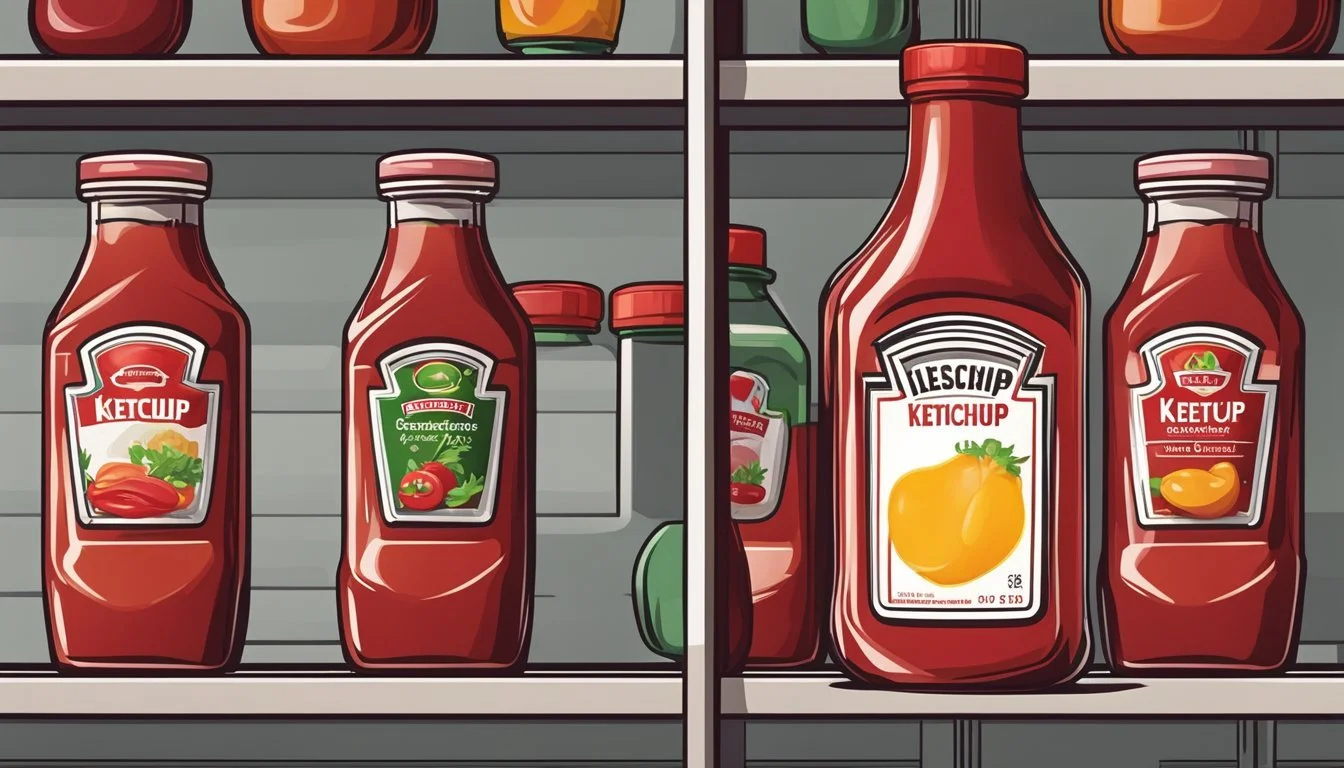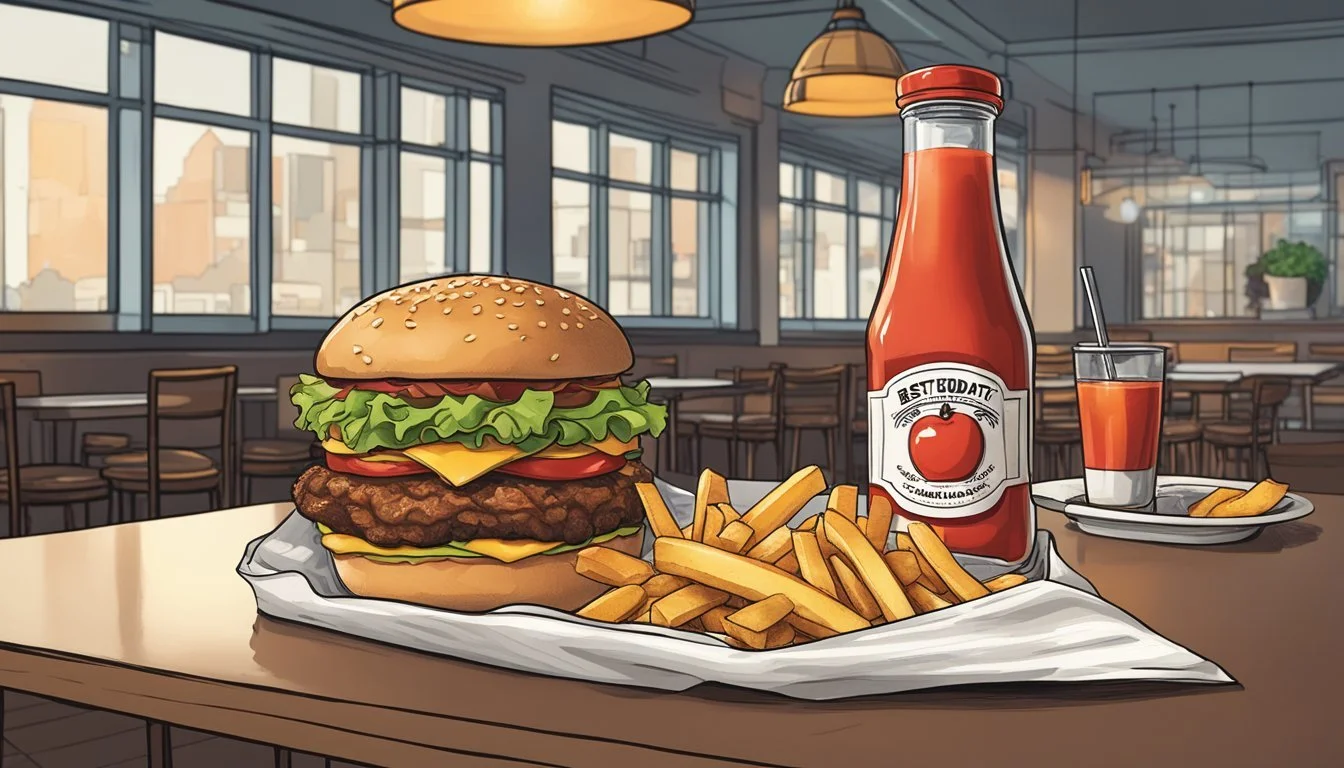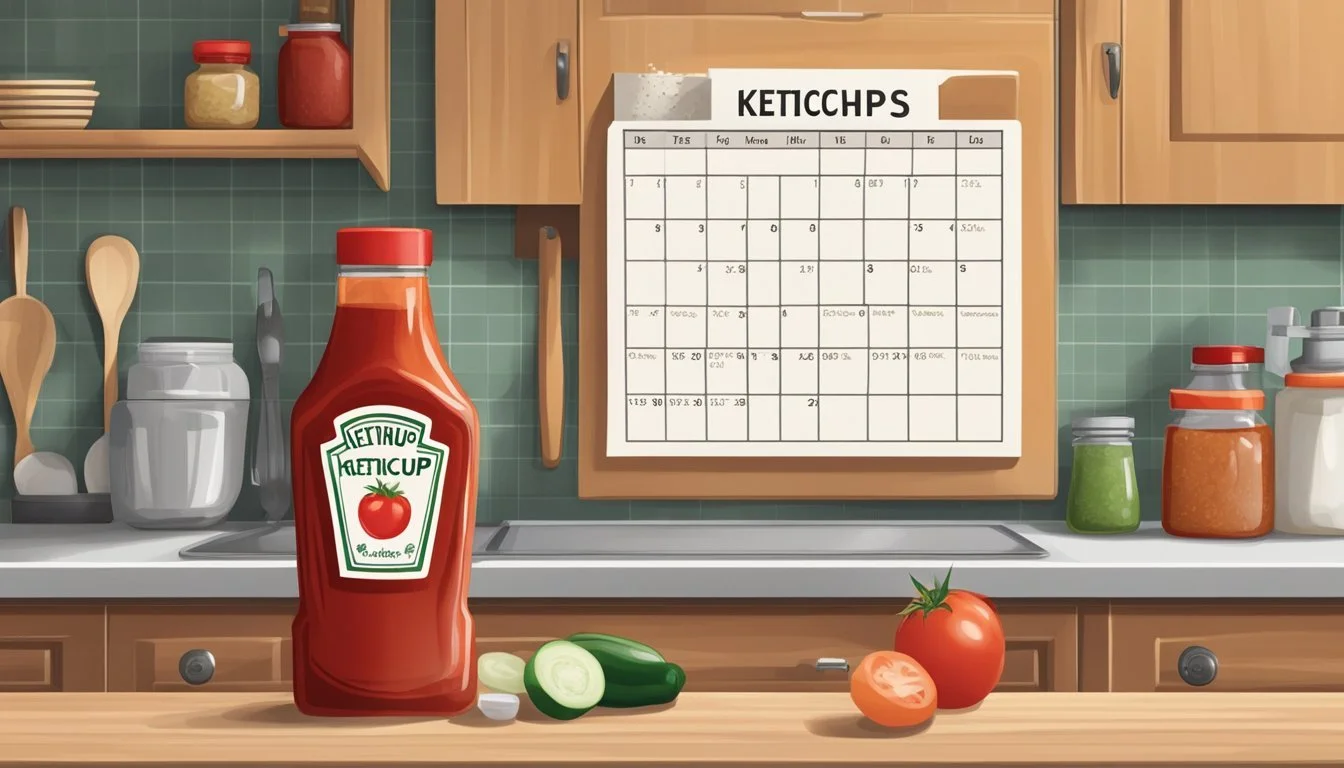How Long Does Ketchup Last?
Shelf Life and Storage Tips
Ketchup is one of the most popular condiments worldwide, prized for its versatility and ability to enhance a wide array of dishes. A staple in many households, it's often purchased in large quantities. However, consumers might wonder about the longevity of this tomato-based sauce and how long it can last before it spoils. The shelf life of ketchup largely depends on how it is stored and whether the bottle has been opened.
Unopened ketchup typically remains at peak quality for one to two years when stored at room temperature. Once the seal is broken, the countdown begins, and preservation methods become crucial. Refrigeration is recommended for opened ketchup, as it will generally keep it at best quality for several months. Signs of spoilage include an off smell, discoloration, or a bad taste. These indicators help determine whether ketchup is still suitable for consumption.
Understanding Ketchup
Ketchup is a staple condiment found in various cuisines around the globe. Its primary ingredient is tomatoes, which are known for their natural acidity. This acidity plays a crucial role in ketchup's preservation and flavor profile. In addition to tomatoes, vinegar is another key acidic component that contributes to both the taste and the shelf life of ketchup.
The composition of ketchup typically includes:
Vinegar
Sweeteners (such as sugar or high fructose corn syrup)
These ingredients make ketchup a unique and versatile add-on to many dishes. The inherent acidity from the tomatoes and vinegar not only provides the tangy taste that ketchup is known for but also acts as a natural preservative. This is why ketchup, even after opening, can last for an extended period when stored properly.
When considering storage and shelf life, it's important to understand that ketchup's longevity is influenced by:
Whether the bottle is opened or unopened
Storage conditions (pantry vs. refrigerator)
Unopened ketchup can be stored in a pantry, whereas it is recommended to keep opened ketchup refrigerated to maintain its quality. Nevertheless, its high acid content means that ketchup generally has a longer shelf life compared to other condiments, even past its labeled best by date, as long as it is stored according to manufacturers' guidelines.
Shelf Life Basics
Ketchup is a pantry staple with a considerable shelf life, whether it's stored unopened or has been opened for use. Understanding the specifics of ketchup's shelf life ensures that one can enjoy this condiment at its peak quality while also avoiding waste.
Unopened Ketchup Shelf Life
An unopened bottle of ketchup typically maintains its quality for up to a year past its "best by" date when stored at room temperature. Manufacturers like Heinz, which is a major producer, provide a "best by" date to indicate peak quality rather than an exact expiration date, implying safety beyond this timeframe if stored properly.
Shelf Life: Up to 1 year past "best by" date
Storage: Room temperature
Opened Ketchup Shelf Life
Once opened, the shelf life of ketchup varies depending on storage conditions. Kept in the pantry at room temperature, the condiment is best consumed within a month, while refrigeration can extend its usability.
Shelf Life at Room Temperature: Approximately 1 month
Refrigerated Shelf Life: 6 to 12 months for optimal quality
Storage Tips:
Keep the cap tightly closed to prevent contamination.
Store in a cool, dark place if unrefrigerated.
Refrigerate to significantly extend shelf life.
Optimal Storage Conditions
Proper storage of ketchup is crucial to maintain its quality and shelf life. The section below outlines the most effective methods for storing ketchup in different environments.
Pantry Storage
For unopened ketchup, a pantry or any dark place at room temperature is suitable. One should aim for a temperature range between 50°F (10°C) and 70°F (21°C). It is important to keep the bottle away from direct sunlight and heat sources to prevent degradation.
Temperature Range: 50°F - 70°F
Conditions: Cool, dark place away from sunlight
Refrigeration
Once a ketchup bottle is opened, refrigerating it is the best way to extend its shelf life. The fridge provides a cold environment that helps maintain flavor and texture. Most store-bought ketchup is to be refrigerated after opening, and can last well beyond the 'best by' date if stored properly.
Location: Fridge
Benefit: Preserves flavor and texture
Freezing Ketchup
Freezing ketchup is generally not recommended. While freezing can extend the shelf life of many foods, it can alter the flavor and consistency of ketchup, causing it to separate upon thawing. For maximum quality, one should avoid freezing and instead use refrigeration for long-term storage.
Advisory: Not recommended due to possible quality alteration
Recognizing Spoiled Ketchup
When ketchup spoils, it exhibits certain distinct characteristics. Consumers can identify spoiled ketchup by paying close attention to visual changes, olfactory indicators, and changes in taste.
Visual Signs
A consumer can often spot spoiled ketchup by looking for noticeable changes in its appearance. Signs of spoilage include:
Color Change: Ketchup that has darkened or developed a brown tint instead of its usual bright red hue may indicate spoilage.
Mold: The presence of mold, especially on the cap or surface of the ketchup, is a clear indication that ketchup has gone bad.
Olfactory Indicators
The smell of ketchup is a reliable way to detect spoilage. One should discard ketchup if they notice:
Off Smell: An uncharacteristic sour or fermented smell is a strong indicator that ketchup is no longer good for consumption.
Sour Smell: Any smell that deviates from the tangy, vinegar-like smell typical of ketchup suggests spoilage.
Taste Assessment
Tasting is not recommended as a primary test for spoilage due to potential health risks, but spoiled ketchup often has:
Flavor Change: A noticeably different flavor profile, such as a loss of sweetness or an overly sour taste, indicates a decline in quality and possible spoilage.
Food Safety Considerations
When considering the safety of ketchup, one must take into account storage, temperature, and signs of spoilage. Ketchup, a high-acidity condiment, holds well against contamination when sealed and stored properly.
Storage in the Refrigerator: Post-opening, ketchup should be stored in the refrigerator to keep it safe for consumption. The cool temperatures (37°F to 38°F) inhibit bacterial growth and extend the shelf life of the condiment up to 6 to 12 months. An unopened bottle is shelf-stable and can be kept in the pantry; however, once opened, refrigeration is crucial for maintaining both quality and safety.
Signs of Spoilage:
Color change
Off odor
Mold growth
Consumers should inspect their ketchup regularly for these signs. If any signs are present, the ketchup should be discarded immediately to avoid foodborne illness.
Homemade Ketchup:
For homemade ketchup, it’s important to follow proper canning techniques to prevent contamination and extend shelf life.
Homemade ketchup typically lacks the preservatives found in commercial products, necessitating careful storage, often in the refrigerator, to maintain food safety.
In terms of food safety, ketchup has a lenient shelf life due to preservatives and acidity but still requires attention to storage practices. It's generally safe past its "best by" date if unopened and stored properly but always exercise caution and use sensory cues (smell and appearance) to determine safety.
Special Cases
When considering the lifespan of ketchup, it's crucial to understand the distinct difference in shelf life between commercially produced and homemade varieties.
Homemade Ketchup
Homemade ketchup, typically lacking the preservatives found in commercial brands, has a considerably shorter shelf life. If one opts for organic ingredients, devoid of synthetic additives, this may further reduce its longevity. Preservation is key; homemade ketchup should be stored in the refrigerator and ideally consumed within:
1 to 2 weeks for optimal taste and safety
Up to 1 month if prepared with a higher vinegar content for preservation
It's important to use sterilized containers to extend the homemade ketchup's shelf life and perform regular checks for any signs of spoilage, such as:
Off odors
Mold growth
Discoloration
Using clean utensils every time one extracts ketchup from the container can prevent contamination and help maintain its quality over its brief storage period.
Maximizing Ketchup Longevity
Proper storage conditions are paramount to ensure the longevity of ketchup. It's important to note that ketchup is shelf-stable and does not require refrigeration until opened. Here are key strategies to prolong the shelf life of both opened and unopened ketchup:
Unopened Ketchup:
Keep unopened bottles in a cool, dark place like a pantry.
Room temperatures should ideally be below 70°F to prevent deterioration.
Opened Ketchup:
Once opened, refrigeration is essential to maintain quality.
The refrigerator should be set below 40°F to effectively slow any bacterial growth.
Adherence to these principles is critical to preserving both the flavor and safety of ketchup over time.
Practical Tips for Prolonging Quality
Buy Smaller Bottles: Smaller containers reduce the amount of air exposure, which minimizes oxidation.
Opt for Upside-Down Bottles: These are designed to keep the contents away from the cap, reducing the risk of contamination.
Use Clean Utensils: Introducing bacteria from used utensils can compromise the sauce's integrity.
Regularly Check the Cap: Ensure the bottle’s cap is clean and tightly sealed after each use to prevent air from entering.
By following these guidelines, one can reliably extend the shelf life of ketchup. Remember, the opened ketchup's freshness is optimally preserved for 1 month in the pantry and for 9 to 12 months in the refrigerator. While the product may not spoil immediately after these time frames, the quality—regarding taste and texture—might decline. Always inspect the ketchup for any signs of spoilage before use.
Ketchup in Commercial Settings
In commercial settings, ketchup's shelf life and storage norms are crucial to maintain both quality and food safety standards.
Restaurants and Packets
Restaurants often utilize bulk ketchup containers and individual packets for serving customers. Bulk containers, when properly sealed and stored, have a similar shelf life to retail bottles. They typically last up to six months when stored in pantry conditions and can extend up to a year or more if refrigerated after opening.
Ketchup packets, on the other hand, are designed for single use and have a longer shelf life due to their sealed nature. They are generally marked with a "best by" date, which indicates peak quality. Although packets can last beyond this date, restaurants should adhere strictly to these dates to ensure the best taste and safety for consumers. It is common for packets to maintain good quality for 6 to 8 months after the date.
To ensure optimal freshness, restaurants must observe the following storage practices for ketchup packets:
Store in a cool, dry place away from direct sunlight
Avoid extreme temperature changes to prevent contamination
Organize packets by their "best by" dates to use older stock first
By maintaining these practices, restaurants can ensure that the ketchup they serve is both safe and of the highest quality for their customers.
Advanced Storage Techniques
When it comes to extending the shelf life of ketchup, advanced storage techniques can be employed to preserve both flavor and quality. One such technique is freezing. While not commonly practiced, consumers can freeze ketchup, which may prolong its usability. The best way to freeze ketchup is by dispensing it into ice cube trays. Once frozen, the ketchup cubes can be transferred to a freezer bag, conserving space and allowing for easy portioning.
Storing ketchup upside down in the refrigerator is another method to consider. This technique encourages the contents to pool towards the cap, which limits the exposure of the ketchup to air, reducing oxidation and maintaining freshness.
For optimal results, always store ketchup in the refrigeration unit post-opening. Keeping ketchup cold not only preserves its flavor but also inhibits bacterial growth. Bottles should be tightly sealed to prevent contamination and leaks.
Below is a summary of techniques:
Freezing: Use ice cube trays for portioning and ease.
Upside Down Storage: Keeps ketchup ready-to-pour; minimizes air contact.
Refrigeration: Always refrigerate after opening; seal tightly.
By using these advanced storage techniques, consumers can enjoy their ketchup for a potentially extended period while ensuring the product remains safe and flavorful. Remember, these methods serve as complements to traditional storage advice and should be adapted to individual preferences and needs.
Ketchup Beyond the Basics
Ketchup is a staple condiment often found paired with classic dishes; however, the culinary possibilities extend far beyond traditional uses. This section explores innovative pairings and alternative applications of ketchup.
Condiment Companions
One can creatively combine ketchup with various condiments to enhance flavors. Ketchup blends smoothly with mayonnaise to make a tangy sauce that complements the savoriness of French fries. A fusion with mustard results in a harmonious dip with a sweet and sharp zest. When melded with horseradish, ketchup gains a spicy kick, suitable for elevating seafood dishes. Chili enhances its heat, making it an excellent dip for robust-flavored snacks.
Creative Utilization
In the realm of kitchen creativity, ketchup serves as a versatile ingredient. It's not just a topping; it can be woven into recipes to add depth and acidity. For instance:
Marinade: Ketchup works well as a base for marinades, adding moisture and flavor to meats.
BBQ Sauce: It's the foundation for many homemade barbecue sauces, complemented by spices and sweeteners.
Meatloaf Glaze: A traditional glaze for meatloaf often includes ketchup for its tang and color.
Ketchup, with its unique taste profile, can be more than a mere addition to a dish; its integration can transform and elevate the culinary experience.







